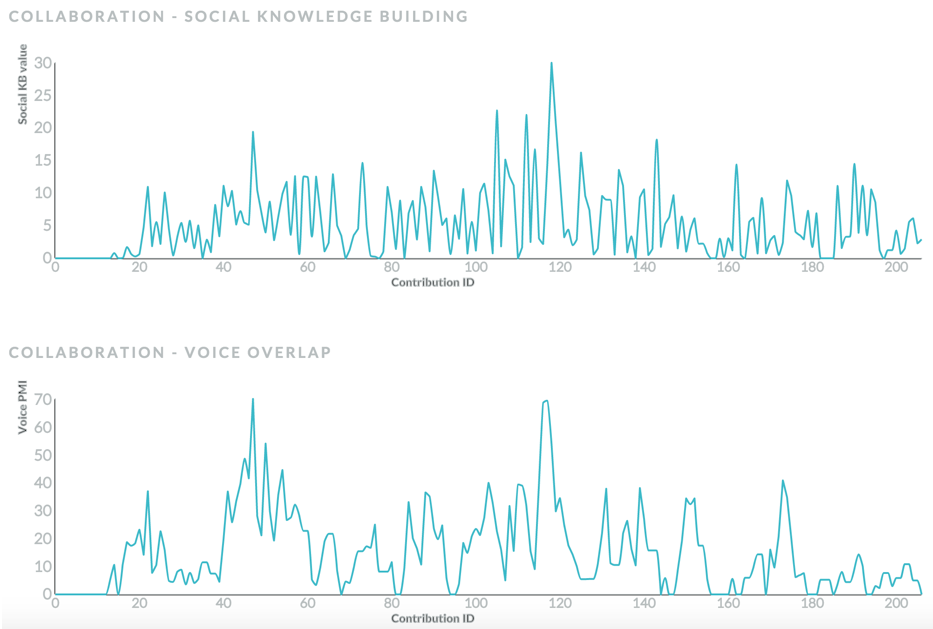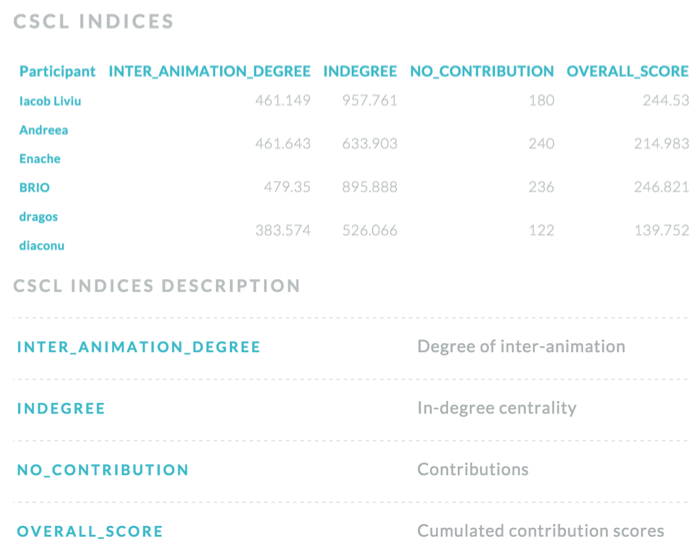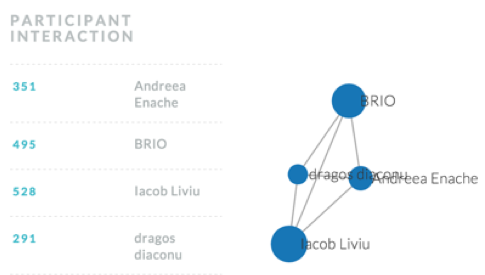ReaderBench - Automated Assessment of Participation and Collaboration in CSCL Conversations
- Creator: UPB
- Publisher: Rage project
- Owner: Dascalu Mihai email
Provides characteristics for chat conversations, such as participant interaction, participant evolution, social knowledge building, voice overlap and concept map.
Short non-technical description: Given a chat conversation, the service provides specific characteristics for chats, such as participant interaction, participant evolution, social knowledge building, voice overlap and concept map.
Technical description:
As Computer Supported Collaborative Learning (CSCL) gains a broader usage, the need for automated tools capable of supporting tutors in the time-consuming process of analyzing conversations becomes more stringent. Therefore, starting from dialogism and a cohesion-based model of discourse, we have developed two computational models for assessing participation and collaboration. The first model is based on a cohesion graph and can be perceived as a longitudinal analysis of the ongoing conversation, thus accounting for collaboration from a social knowledge-building perspective. In the second approach, collaboration is regarded from a dialogical perspective as the intertwining or synergy of voices pertaining to different speakers, therefore enabling a transversal analysis of subsequent discussion slices.
Given an a chat conversation and some other parameters like language and corpus used for training, the Automated Assessment of Participation and Collaboration service provides specific characteristics for chats, such as participant interaction, participant evolution, social knowledge building, voice overlap and concept map.
Support levels: The component is available "as is" without warranties or conditions of any kind. Reported bugs will be fixed. Continued support for new versions of the OS and game engines. New features will be added according to the developer's roadmap. New features can be added upon request (requires a service contract).
Detailed description:
The ReaderBench framework can be either cloned from our GitLab Repository or simply used as deployment library.
The Repository contains three projects:
- The ReaderBench Core
- The ReaderBench Desktop Client
- The ReaderBench API
The ReaderBench Core can be accessed to explore the Natural Language Processing functionalities and operations performed by ReaderBench. You may either clone this project and explore its contents, or you can simply use it as a Maven dependency by cloning it from our Artifactory server.
The ReaderBench Desktop Client can be used to test ReaderBench functionalities with the help of a Java Swing interface. This project uses the ReaderBench Core, so you may use it as a guide into integrating ReaderBench in your projects.
The ReaderBench API can be used to explore how the ReaderBench Application Programming Interface works. Similar to the ReaderBench Desktop Client, you may discover how to integrate the ReaderBench Core into a project.
Language: English, French
Access URL: https://git.readerbench.com/ReaderBench/ReaderBench.git
Download: ReaderBench-Automated-Assessment-of-Participation-and-Collaboration-in-CSCL-Conversations.zip
cscl
collaborative learning
semantic models
Source code:
Documentation:
- http://readerbench.com/docs/cscl/manual
- https://git.readerbench.com/ReaderBench/ReaderBench/blob/v3.0/README.md
- https://git.readerbench.com/ReaderBench/ReaderBench/wikis/home
- http://readerbench.com/docs/api
Setup files:
- http://readerbench.com/docs/cscl/sdd
- https://git.readerbench.com/ReaderBench/ReaderBench/wikis/how-to/how-to-install-and-run-readerbench
- https://owncloud.readerbench.com/index.php/s/w33mnCcpH1Bp1zs/download?path=/&files=README.txt
Test:
Game development environment: Other
Target platform: Other
Programming language: Java
Version: 3.0
Version notes: Stable version after major project split.
Development status: Completed
Commit URL: https://git.readerbench.com/ReaderBench/ReaderBench/tags/v3.0
Type: Apache 2.0 (Apache License 2.0)







